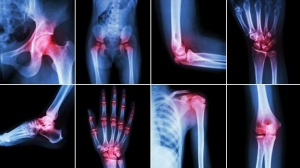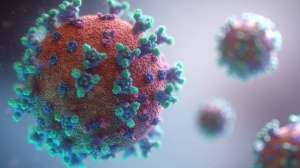Sexually transmitted diseases (STDs) are common infections that can affect anyone who is sexually active. Recognizing the signs of an STD is crucial for early detection and treatment, helping to prevent further complications. Understanding the symptoms, when to consult a doctor, and the importance of early detection is essential for maintaining sexual and overall health, especially when addressing STDs in Dubai.
Recognizing Common Symptoms of STDs
STDs often present with a variety of symptoms that can vary depending on the infection. Some common symptoms include unusual discharge, sores or bumps, painful urination, itching, or pelvic pain. However, not all STDs show noticeable symptoms, making it difficult to identify an infection without medical evaluation.
Asymptomatic Cases
In some cases, individuals may carry an STD without exhibiting any symptoms. These silent infections can still pose risks, including transmission to partners and long-term health complications. Regular testing is vital for anyone who is sexually active, especially if they engage in high-risk behaviors.
Why Consulting a Doctor is Essential
A doctor plays a crucial role in diagnosing and managing STDs. Self-diagnosis is unreliable and can lead to incorrect treatments or worsening of the condition. Medical professionals use advanced techniques to confirm infections and provide tailored solutions.
Diagnostic Tools Used by Doctors
Doctors employ various diagnostic methods to identify STDs accurately. These include:
- Physical Examinations: Checking for visible signs such as sores, rashes, or swelling.
- Laboratory Tests: Blood tests, urine samples, or swabs are analyzed to detect infections.
- Screening Panels: Comprehensive panels help identify multiple STDs simultaneously.
Understanding the Importance of Early Detection
Detecting an STD early ensures timely intervention and prevents complications such as infertility, chronic pain, or other systemic health issues. Regular check-ups with a healthcare provider and open discussions about sexual health can help mitigate risks.
Benefits of Early Medical Consultation
Early consultation with a doctor can:
- Prevent the spread of infection to others.
- Reduce the risk of long-term complications.
- Provide peace of mind through accurate diagnosis.
What to Expect During a Doctor's Visit
Many people feel apprehensive about visiting a doctor for STD concerns, but understanding the process can help alleviate anxiety. The visit typically includes:
- A discussion of symptoms and sexual history in a confidential setting.
- Physical examination if symptoms are present.
- Sample collection for lab testing.
Doctors create a judgment-free environment to ensure patients feel comfortable discussing their concerns. Transparency during these visits leads to accurate diagnosis and appropriate care.
Follow-Up and Preventative Measures
Once diagnosed, a doctor will recommend a treatment plan tailored to the specific STD. Additionally, they often provide guidance on preventing future infections. Preventative strategies may include:
- Regular testing.
- Safe sex practices, such as condom use.
- Open communication with partners about sexual health.
FAQs
What are the early signs of an STD?
Early signs may include unusual discharge, itching, or painful urination, but many infections are asymptomatic.
How often should I get tested for STDs?
Sexually active individuals should consult their doctor for personalized testing schedules, often recommended annually or more frequently for high-risk behaviors.
Can I have an STD without knowing it?
Yes, many STDs can be asymptomatic, which is why regular testing is essential for early detection.
How long does it take for STD symptoms to appear?
Symptoms can appear within days to weeks, depending on the type of infection, but some may remain dormant for months or years.
Is an STD curable?
Many STDs are curable with proper treatment, while others can be managed effectively with ongoing medical care.
Conclusion
Understanding the signs of an STD and seeking medical advice promptly are critical steps toward maintaining sexual health. Regular check-ups, open communication, and following a doctor's advice ensure early detection and effective management. Stay proactive about your sexual health and seek professional guidance for peace of mind and overall well-being.





